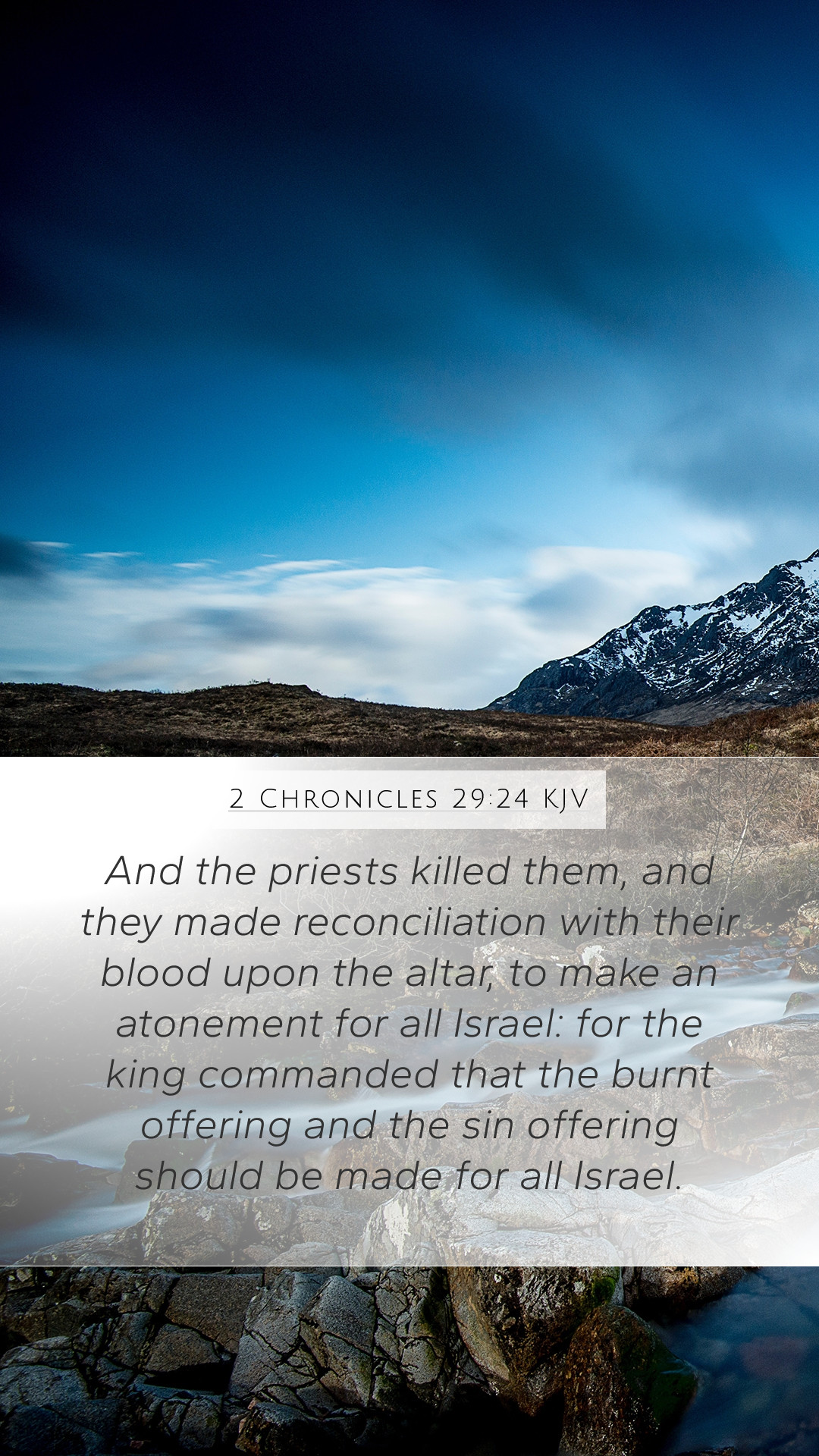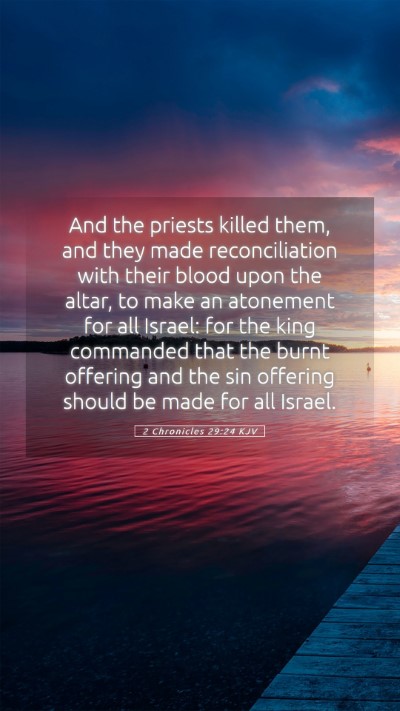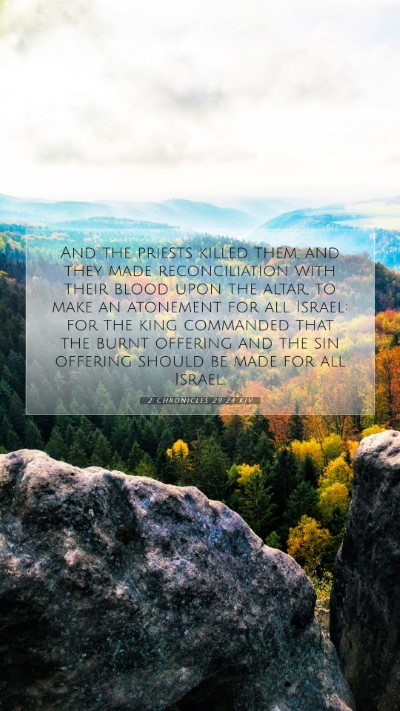Bible Verse Meaning and Interpretation of 2 Chronicles 29:24
Bible Verse: 2 Chronicles 29:24 - "And the priests killed them, and they made reconciliation with their blood upon the altar, to make an atonement for all Israel: for the king commanded that the burnt offering and the sin offering should be made for all Israel."
Understanding 2 Chronicles 29:24
In this verse, we see a powerful moment of atonement for the nation of Israel through the sacrificial system commanded by King Hezekiah. This scripture highlights the importance of blood sacrifices in the Old Testament as means for reconciliation with God.
Key Themes
- Atonement: The act of making amends or reconciliation; it signifies the need for atonement for sins committed.
- Priestly Role: The priests act as mediators between God and the people, performing the sacrificial rituals.
- Corporate Responsibility: It reflects the idea that the actions taken are for all Israel, indicating collective sin and the need for community repentance.
Bible Verse Meaning According to Commentaries
Matthew Henry: Henry emphasizes that this verse illustrates the critical role of the priesthood in Israel, affirming their responsibilities and the gravity of their tasks in providing atonement for the people. The blood sacrifice represents both the seriousness of sin and the mercy of God in providing a way to be reconciled. The communal aspect serves as a reminder that sin affects the whole community and not just individuals.
Albert Barnes: Barnes elaborates on the significance of 'reconciliation with their blood' as a fulfillment of the sacrificial requirements of the Law. He explains that these sacrifices were essential for maintaining the covenant relationship between God and Israel. The urgent commands of King Hezekiah for these specific offerings indicate his devotion to restoring true worship and making things right with God.
Adam Clarke: Clarke points out the historical context of this verse, noting that Hezekiah's reign marked a revival of religious observance in Israel. He stresses that the act of atonement through these sacrifices was not merely ceremonial but represented a heartfelt return to God and an earnest desire for His favor. Clarke's insights also connect the acts of the priests to the overarching themes of restoration and renewal in the nation.
Cross References
- Leviticus 4:20: The Lord's instructions for sin offerings.
- Hebrews 9:22: The significance of blood in the atonement process.
- 2 Kings 23:21-23: The reformations of King Josiah and the return to Passover observances.
Application and Relevance
This verse is not merely a historical account but also serves as a vital lesson for modern readers about the nature of sin and the need for atonement. In a devotional context, believers can reflect on the price of redemption in their own lives and the importance of reconciliation with God. Additionally, it encourages a sense of communal responsibility within faith communities.
Integrating with Bible Study
For those involved in Bible study groups, this verse can spark discussions on the nature of sacrifice and atonement, drawing connections to Christ’s ultimate sacrifice. Online Bible study resources might include related lessons that address the significance of blood in the covenant, enriching understanding through a variety of Bible study tools and Bible study materials.
Conclusion
In summary, 2 Chronicles 29:24 serves as a profound reminder of the seriousness of sin and the belief in atonement through sacrificial offerings, which ultimately set the stage for understanding the fullness of redemption in the New Testament. Grasping the meaning of such verses is crucial for anyone seeking to deepen their Bible verse interpretations and understanding Scripture.


